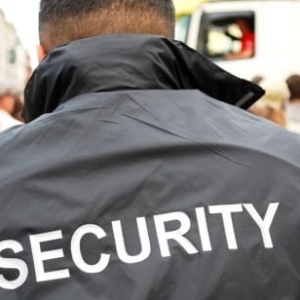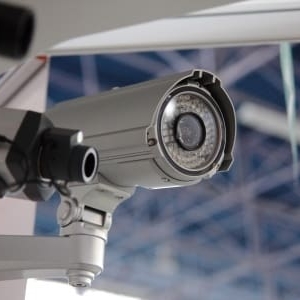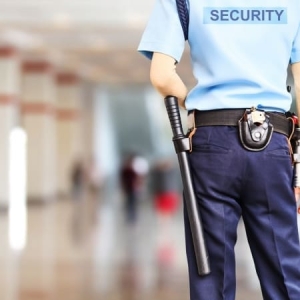What is a Security Risk Assessment?
Some people know it as a security survey or risk assessment. Whether you call it a security survey, risk assessment, or security assessment, it is basically the same. It is a systematic on-site assessment and analysis of your current security measures, whether they are physical security measures, technology, management, policies, training or any other aspect of your security program or measures.


What a Security Risk Assessment or Security Survey Entails Protection Management, LLC works with clients to identify their needs and tailor the assessment to work towards a common goal as established in writing. Our security risk assessments are tailored to our client’s unique needs and can include a review of the following and any site specific security concerns:
- Active Shooter Prevention
- Armed Security
- Bullying Prevention
- Card Access System
- Cash Handling Security
- Crime Prevention Through Environmental Design (CPTED)
- Crime Statistics For The Area
- Domestic Violence Prevention
- Door Locks And Hardware
- Exterior Landscaping
- Exterior Lighting
- Gang Violence Prevention
- Internal Incident Reports
- Inventory Security Measures
- Key Control Program
- Loss Prevention
- Lost and Found
- Organized Labor Union Intimidation
- Parking Security
- Perimeter Security
- Previous Security Assessments
- Proper Signage
- Security Alarms
- Security Awareness
- Security Cameras
- Security Department Job Descriptions
- Security Equipment & Uniforms
- Security Management
- Security Operations
- Security Orientation
- Security Policies
- Security Post Orders
- Security Records
- Security Sensitive Areas
- Security Staff Competency
- Security Staffing Levels
- Security Surveillance
- Security Training
- Security Technology Assessment
- Threat Assessment
- VIP Security Planning
- Visitor Control
- Workplace Violence Prevention
Our Security Risk Assessments cover both Physical and Electronic Security Measures
The assessments provided by Protection Management are extensive and cover all aspects of your physical and electronic security measures. We will make recommendations for improvements and our review will be based on facts, and measured against industry-accepted standards and security best practices.
Security Risk AssessmentOur clients have described our reports as detailed, based on factual information, easy to understand, and concise.
- We provide a printed report with an additional copy on a compact disk for your files.
- In addition to the printed form, our recommendations come in an electronic version for ease of tracking and documenting your implementations.




Benefits of working with a Security Consultant and Expert like Protection Management, LLC for your Security Risk Assessment
- Protection Management, LLC, offers the highest trained consultants, with the two highest professional certifications available.
- Board Certified in Security Management as a Certified Protection Professional (CPP).
- In order to become a CPP, the security professional needs an extensive background in the security field with years of experience, and a knowledge base that exceeds most security professionals.
- Certified Healthcare Protection Administrator (CHPA), the highest certification available for the healthcare security consultant/expert.
- Board Certified in Security Management as a Certified Protection Professional (CPP).
- Over 35 years of experience with security risk assessments as a trusted security expert.
- Our President/CEO John M. White, CPP, CHPA, is soon to be a published author on Security Risk Assessments.
- Extensive Background in law enforcement including supervisory and training officer roles and extensive security executive management experience.
Additionally, security consultants like Protection Management, LLC are required to keep current, and because they visit numerous sites all over the country each year they see where the challenges are at firsthand and will find solutions as part of their continuous assignments.
Common Issues to Avoid when choosing How to Conduct a Security Assessment
Issue #1: Asking internal staff to conduct your security risk assessment to “save on expenses”.
- Assessing your security measures should be conducted in an unbiased manner. Therefor, your existing security manager may not be the best person to conduct this important task.
- Many times internal staff’s limited knowledge of risks and vulnerabilities are such that they cannot always determine all of the potential risks or vulnerabilities.
- Internal staff is often very limited on continuing education and training due to budgets or time restraints. In most cases they have no means in which to keep abreast of the current security threats or mitigation strategies.
- Experience has shown that an internal staff member may not always disclose all security concerns to avoid bringing to light internally known deficiencies that might be cause for embarrassment for security leadership.
Issue #2: Hiring a Salesman in Disguise as a Security Consultant
- A security guard service company or technology consultants often have staff on their payroll that they call a security consultant.
- In many cases their staff person is a salesman that is going to try and sell you a service or product.
- Be sure you look carefully at their motivation, and the products they steer you to.
- Often times companies get security technology that is outdated, as they have left-over products that they want to unload.
- It is your business’ name, reputation, and risks that you are trying to protect and mitigate, so proceed with caution.
Issue #3: Creating a Reactive Security Assessment vs. a Proactive Assessment
Police departments often offer services to survey your security measures. Police officers are a good source of information on crimes in your area. Some of them even receive training in crime prevention.
- Police departments are reactive to crimes in most cases, and a good security program is proactive.
- You want to prevent crimes, not just react to them.
- If you looking to protect your business assets, trade secrets, staff, reputation, and so on, then you really should consider someone that has the knowledge and resources available to them.
- Our experts have worked in law enforcement and we understand that police officers have limited knowledge on security management practices.


